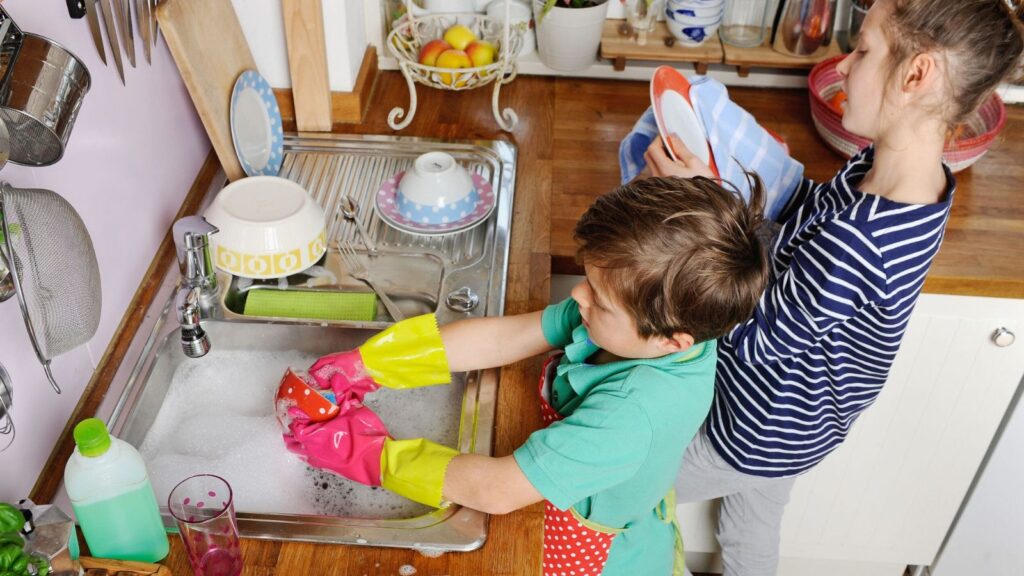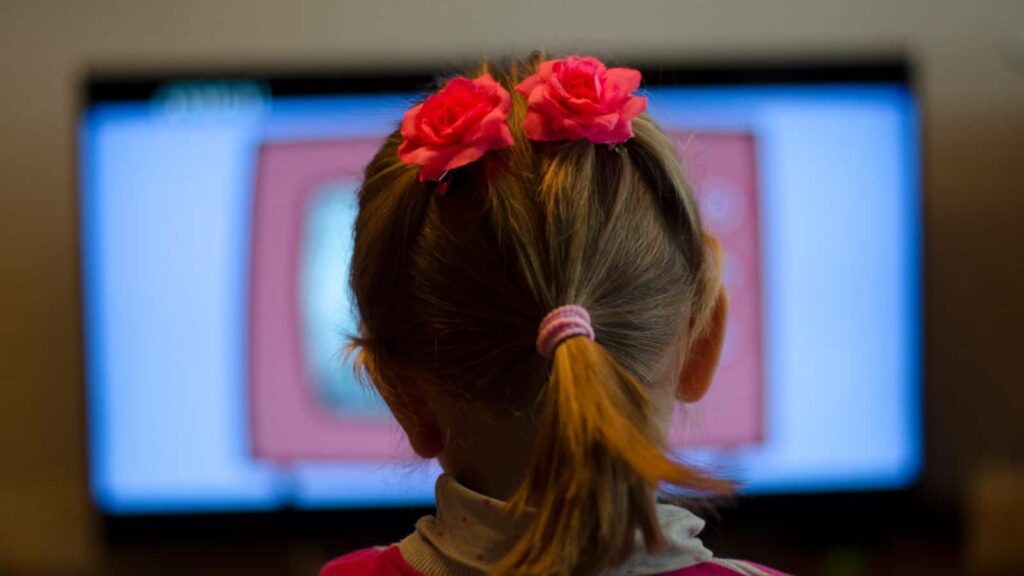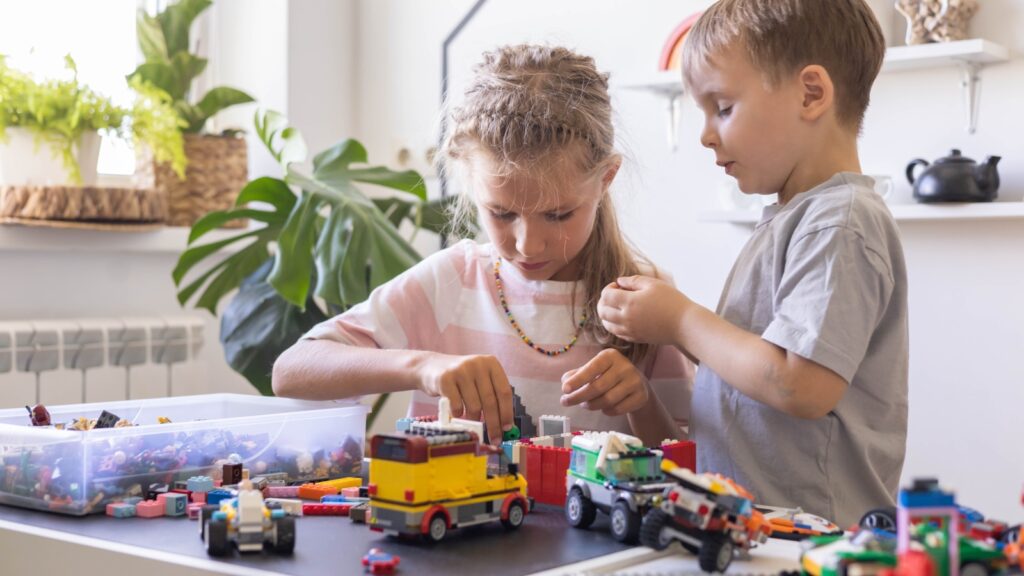There was an old saying that “children should be seen and not heard” that dates back to the Baby Boomer generation. Where once kids were predominantly a part of the family who used to chip in and probably do more than their fair share of work, there was a complete turnaround over the past several generations where they became the center of the family. Helicopter parents were born out of the idea that it is a parent’s job to shelter and protect their children from all wrongs and hurts, but in that line of thinking, teaching independence got lost. If you want your children to make it out in the world alone, these are 18 tips to teach them valuable lessons about doing things alone.
Let Them Make Their Own Decisions

Most would think that decision-making is an innate skill, but they would be wrong. Children learn how to weigh the pros and cons of any decision based on the experience of consequences. If you never allow your child to decide for themselves, they never learn to reason and weigh the options to find the best solution. Something as simple as “What would you like for lunch,” is a perfect way to help guide them through the process.
Household Chores

Those born in the '70s and '80s remember well that the weekends weren’t about playing with friends or travel ball. Weekends were a time when you did the laundry, mowed the lawn, and did all of the household chores that were your responsibility. Giving kids chores is an excellent way to teach them a work ethic. It also helps them feel as if they are a part of the family with responsibilities.
Allow Them to Fail

The way that people learn is through trial and error, but more so the error part. If you never allow your children to fail, they will never learn from their mistakes or stop repeating them. Failing is difficult to watch. As a parent, you want to protect them, but there is no harm in allowing them to make mistakes to learn from them.
Offer Choices

Sometimes, a question such as “What would you like for lunch,” is too overwhelming, and narrowing the question down by offering choices is a better way to introduce decision-making. By allowing them to see the options and make a decision for themselves, you let them go through the process of following a decision through to the end.
Praise Their Successes

One of the best ways to teach your children independence is through giving them praise for their successes. It is usually easy to catch your child doing something wrong, but it is more important sometimes to catch them doing something right and make them feel accomplished for it. The more positive feedback they receive, the more they are likely to try things on their own without help.
Don’t Just Punish

It is easy to punish your child for something they have done wrong, but taking the time to tell them why it was wrong can sometimes get lost in the shuffle. Children are capable of having a mature conversation about consequences and why what they did led to what the punishment is. In going through the steps, you are helping them see where along the lines they could have made better choices that wouldn’t have led to being punished.
Give Them Space

It is a scary world, there is no doubt about that, but you can’t keep your children sheltered. At some point, they are going to have to be on their own, and if you don’t give them the skills to think on their feet, you are doing a disservice. Allow them to go to the shampoo aisle alone and then watch from afar. The more times they do something on their own, the more they will learn to be independent. They don’t need to know you are looking out, but they do need to learn how to go it alone.
Let Them Do Their Projects

You can always go to a school fair and tell who’s parents did what for their children. It is tempting to want your children to be successful. Helping is not the problem, but when you take over, and you don’t allow children to do their work, you are robbing them of the experience of learning to organize, multi-task, and learn valuable lessons like time management. You already had your time to shine at the science fair; step back and have faith your children will, too, on their own.
It isn't Your Homework

Children have homework at night so that the information they learned from the day stays fresh in their minds. It is their homework, though; you already did yours. If your child is struggling with their work, then it is reasonable to help them. By middle school, however, they should be responsible for their work. If their homework isn’t done, then they should feel the consequences of it.
Allow Them to Do Simple Tasks

Allow your child to make their lunch and choices about what they want for the next day. If you provide them with the right snacks to choose from, let them have the independence to pack their lunch the way that they want. If they are old enough to do something, why not let them?
Self Feeding is Okay

It is okay to let your children fend for themselves for breakfast and lunch. In the '70s and '80s, parents didn’t get out of bed until they felt like it. Children would be up making themselves cereal and watching their favorite cartoons. It might be a little messier allowing them to self-feed, but then it is a great lesson to show them that they have to clean up after themselves.
Make Them Clean Up After Themselves

The sink is not a tool that washes dishes and utensils. Often, we make children do the first step but take over too quickly without giving them full instructions. Instead of having your child put their dishes in the sink, show them how to load the dishwasher. Then, when the dishwasher is done, have them empty it. It is sometimes easier to just take over and do it yourself for time’s sake, but you are doing your child no favors by not taking the time to show them.
Let Them Speak Up

If you are at a restaurant, let a child order for themselves. Teach your child to stand up for and take responsibility for themselves by allowing them to have a voice. You don’t need to interpret their food order, just point to them and allow them to have a conversation with the waitress where they are self-sufficient in ordering what they want.
Let Them Clean Up After Their Mistakes

When our children get into trouble, we want to make the situation right. Instead of marching into the principal's office and taking the lead, ask the principal to talk to your child directly. It is much more intimidating talking with an adult when your parent isn’t present. Allowing your child to figure out how to make amends and be responsible for what they’ve done wrong is one of the best lessons you can teach.
Encourage Projects

Teach your children that the world doesn’t revolve around them by showing them those who need help in the community. By opening their eyes to the fact that they can make a big difference on their own through volunteering and other projects, you give them a sense of empowerment that is invaluable and will carry through to their adult lives.
Give Them Responsibility for Others

Giving your children responsibility over others is a great way to teach them how to care for people other than themselves. Setting up instances where they can help out with younger children in your presence or taking on the role of a mother’s helper are all ways that you can give them a sense of responsibility to others.
Put Them into Uncomfortable Situations

As humans, we all like to stick to what we are comfortable with, but as a parent, pushing your child’s boundaries will help them to think quickly and adapt at times when it isn’t easy to do so. Encouraging independence is about teaching them that they have the intelligence to handle any situation that they find themselves in.
Allow Them to Work Through Emotional Issues

Having problems with your friends is a part of growing up and learning how to communicate with others. If your child is having a personal problem with a friend, don’t step in to help them by taking over. It is okay to stand by and help guide them, but learning conflict resolution is best when you stand back and let them navigate their friendships and emotions.
Protecting Children is the Most Important Aspect of Parenting

Parents have the important task of keeping their children safe and teaching them how to navigate the world around them. It isn’t easy to watch your children fail, but it is necessary so that they grow and learn from their mistakes. If you want to teach your child independence, you have to give them the necessary space to make decisions on their own and be willing to watch them fall.
30 Traditional Sayings That Are Now Considered Offensive by Woke Culture

30 Traditional Sayings That Are Now Considered Offensive by Woke Culture
21 Habits Often Associated With Having a Lower Social Status

21 Habits Often Associated With Having a Lower Social Status
25 Social Issues Gen Z are Determined to Cancel

